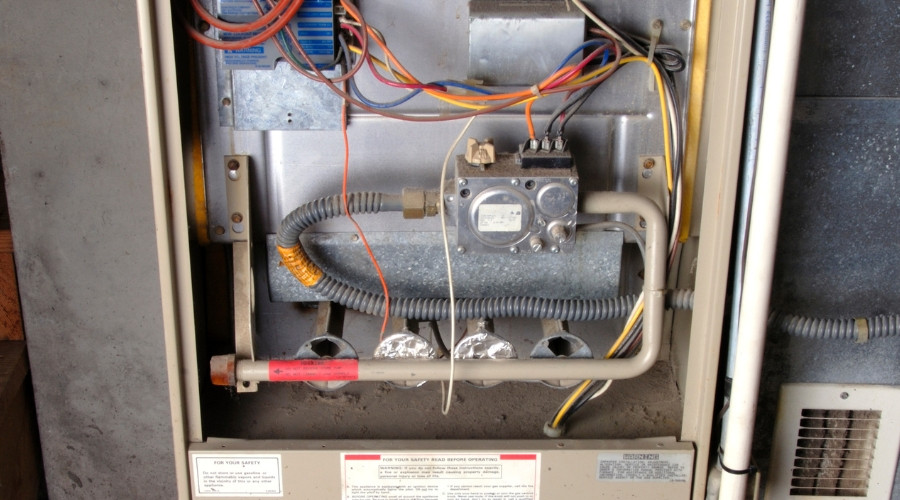When to Call for Heater Repair
A sudden chill indoors often signals that a heater or broader heating system needs attention. Ignoring early clues—like unfamiliar noises, inconsistent temperatures, or a rising utility bill—can allow small problems to grow into major failures. Identifying symptoms early enables timely heating repair that restores dependable performance, helps control costs, and keeps equipment operating efficiently. This guide highlights the most common indicators, explains what they mean for efficiency and safety, and shares how prompt heater repair and heating maintenance can prevent bigger issues.
High Utility Bills
 An unexpected surge in an energy bill often points to declining efficiency within a heating system. When filters are clogged, sensors drift out of calibration, or motors begin to weaken, equipment tends to run longer and harder to reach normal temperatures—wasting energy and inflating costs. Heater repair can pinpoint the source of the inefficiency and return operation to a more efficient baseline.
An unexpected surge in an energy bill often points to declining efficiency within a heating system. When filters are clogged, sensors drift out of calibration, or motors begin to weaken, equipment tends to run longer and harder to reach normal temperatures—wasting energy and inflating costs. Heater repair can pinpoint the source of the inefficiency and return operation to a more efficient baseline.
Common contributors include restricted airflow from dirty filters, malfunctioning thermostats that call for heat longer than necessary, and aging blower motors that draw extra electricity while moving less air. Duct leaks and deteriorated seals can also let heated air escape, increasing run time without improving comfort. A careful inspection, followed by targeted heating repair, can tighten up performance and stabilize the utility bill. Pairing repairs with routine heating maintenance—filter changes, airflow checks, and system calibration—helps preserve efficiency over the rest of the season and reduces the chance of sudden breakdowns.
Unusual Sounds or Smells
Odd noises and lingering odors are frequent early warnings that a heater needs repair. Banging or clanging can indicate loose panels or mounting hardware, while squealing or grinding often points to belt, bearing, or motor concerns. A persistent whistling may signal airflow restrictions from a clogged filter or partially closed vent, which undermines efficient operation.
Unusual smells deserve quick attention as well. A sharp, electrical or hot-plastic odor can suggest overheating components or wiring issues. Musty or earthy smells sometimes indicate moisture or microbial growth within the air handler or ducts, affecting both air quality and efficiency. Fuel or combustion-related odors should be treated as urgent and evaluated by a qualified professional. Addressing these signals promptly limits wear on critical parts, helps the system run more efficiently, and reduces the risk of an unplanned outage during colder weather. Incorporating periodic heating maintenance can also prevent many noise and odor issues before they start.
Insufficient Heating
 When rooms remain cool despite long run times, the heating system may be struggling to deliver adequate warmth. Cold spots, frequent thermostat adjustments, and airflow that feels weaker than usual are common indicators that heater repair is needed. These symptoms not only reduce comfort but also push energy consumption higher, which shows up on the utility bill.
When rooms remain cool despite long run times, the heating system may be struggling to deliver adequate warmth. Cold spots, frequent thermostat adjustments, and airflow that feels weaker than usual are common indicators that heater repair is needed. These symptoms not only reduce comfort but also push energy consumption higher, which shows up on the utility bill.
Several issues can cause underperformance. Miscalibrated thermostats may shut equipment off too early or keep it running without improving comfort. Dirty filters limit airflow through the heat exchanger, while worn burners or heating elements reduce output. Duct leaks allow warm air to escape before reaching occupied areas, creating temperature imbalances from room to room. A professional assessment can determine whether the fix is as simple as a filter change, duct sealing, or thermostat recalibration—or if component replacement is necessary. Following repairs with regular heating maintenance helps maintain efficient operation and extends equipment life.
About Chad's AC Direct
Chad's AC Direct is a leading HVAC contractor providing personal attention and service at great value in Montgomery and the neighboring communities. Call today to schedule same-day heater repair service in Montgomery, AL.




